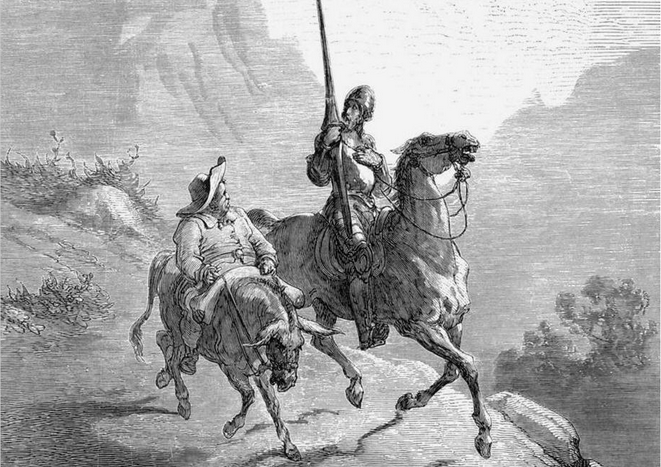How False Memories And Assumptions Save Us, Doom Us: Pros And Cons Of An Irrational Mind

In a famous chapter of Miguel de Cervantes’ Don Quixote, the eponymous nobleman turned knight is lowered into the mysterious Cave of Montesinos, where he immediately submits to sleep and dreams of Spanish romances. The dream allows the deranged knight to formulate answers to the many inconsistencies that have plagued his adventure – giants that turn out to be windmills, damsels revealed to be prostitutes, and towering castles that morph into seedy inns. Believing the dream to be real, Don Quixote synthesizes a false memory that offers an explanation to each of these embarrassing turns.
While Cervantes may have included the episode as an excuse to ratchet up the buffoonery before his tale’s impending end, the dream reveals a fundamental truth about the human mind. Numerous studies and experiments indicate that the brain is highly susceptible to similar phantasms and false memories, as it is wired to make assumptions and inferences. According to some researchers, this tendency may have been crucial to our early ancestors' survival.
The Unreliable Mind
For the past ten years, Kimberly Wade of the University of Warwick has been trying to understand the strange malleability of human memories. One explanation, she says, is the brain’s inability to negotiate the exorbitant amount of sensory information available at any given moment.
"Our perceptual systems aren't built to notice absolutely everything in our environment. We take in information through all our senses but there are gaps," she said, speaking to BBC News. "So when we remember an event, what our memory ultimately does is fills in those gaps by thinking about what we know about the world."
But unlike that of a computer, the brain’s inductive gap-filling does not rely on strict probability and reason. Instead, the brain appears to put self-preservation over accuracy. For example, imagine walking through a jungle and seeing some grass move. Even though there is a 99 percent chance that it is nothing but the wind, you will instinctually interpret it as a threat. According Sergio Della Sala at the University of Edinburgh, this reaction makes perfect sense from an evolutionary perspective, as an individual wired to think with the logical rigor of a computer would be eaten by a lurking tiger one percent of the time.
"The brain is prepared to make 99 errors to save us from the tiger. That's because the brain is not a computer. It works with irrational assumptions. It's prone to errors and it needs shortcuts," he told reporters
Dealing With A Memory Prone To Error
Christopher French of Goldsmith University says that although the brain’s unreliability is common knowledge for anyone familiar with the literature of psychology, it remains obscure among people outside the academy.
"There are still people who believe memory works like a video camera as well as people who accept the Freudian notion of repression – that when something terrible happens the memory is shoved down into the subconscious," he added.
In certain official contexts, this erroneous conception of human memory may have serious consequences. For example, defendants in criminal trials are sometimes misidentified by eyewitnesses whose memories have been compromised by stress and anxiety. Today, organizations like the Innocence Project work towards overturning such wrongful convictions with sophisticated forensic technology.
Hopefully, these research effort will make more and more people realize that the false memory, like Don Quixote's dream, can both save and destroy us.



























